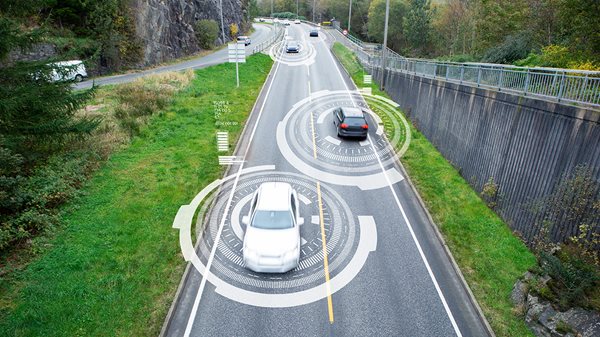The Rise of the Connected Car
The automotive industry is undergoing a dramatic transformation, fueled by the rapid advancement of technology and the increasing demand for connectivity. We’re moving beyond the traditional car as a simple mode of transportation; it’s rapidly evolving into a sophisticated, intelligent, and deeply connected device. This shift, often referred to as the “connected car revolution,” is reshaping how we interact with our vehicles and the world around us.
Connectivity’s Core Components: Hardware and Software
At the heart of this revolution lies the intricate interplay of hardware and software. Advanced telematics units, embedded sensors, high-speed data connections, and powerful onboard computers are becoming standard features. These systems collect vast amounts of data, from vehicle performance metrics to driver behavior and environmental conditions. Sophisticated software algorithms then process this data, enabling a range of intelligent features and services.

Enhanced Safety Features: Protecting Drivers and Passengers
One of the most significant benefits of connected cars is the substantial improvement in safety. Features like advanced driver-assistance systems (ADAS), emergency response systems, and predictive maintenance alerts are now commonplace. ADAS includes technologies like automatic emergency braking, lane departure warning, and adaptive cruise control, significantly reducing the risk of accidents. Real-time location tracking and automatic crash notification further enhance safety, providing vital assistance in emergencies.
Infotainment and Entertainment: Transforming the Driving Experience
Beyond safety, connected cars are revolutionizing the in-car experience. Integrated infotainment systems provide seamless access to navigation, music streaming, hands-free communication, and a host of other apps and services. Large touchscreens, voice-activated controls, and personalized user profiles enhance convenience and entertainment during drives, transforming commutes into more enjoyable and productive experiences. The integration of smart home devices and other platforms extends convenience even further.
Data Collection and Privacy Concerns: Navigating the Ethical Landscape
The vast amount of data collected by connected cars raises important questions about privacy and data security. Automakers are increasingly aware of these concerns and are implementing measures to protect user data. Transparency and user control over data sharing are becoming crucial aspects of the connected car experience. The industry is actively working on establishing robust security protocols to prevent data breaches and unauthorized access.
The Future of Connected Cars: Autonomous Driving and Beyond
The connected car revolution is laying the groundwork for fully autonomous vehicles. The data collected by these systems is crucial for developing and refining self-driving technology. As autonomous capabilities advance, connected cars will play an increasingly critical role in optimizing traffic flow, reducing congestion, and improving overall transportation efficiency. The possibilities extend beyond autonomous driving, encompassing advanced vehicle-to-infrastructure (V2I) communication and integration with smart cities.
The Impact on the Automotive Industry: Adapting to Change
The shift toward connected cars is profoundly impacting the automotive industry. Traditional automakers are partnering with tech companies and software developers to develop and integrate the necessary technologies. New business models are emerging, focusing on data services, software updates, and subscription-based features. The industry is adapting to a more dynamic landscape, where software and data are becoming as important as traditional mechanical components.
Challenges and Opportunities: Embracing the Connected Future
Despite the immense potential, the transition to a fully connected automotive ecosystem faces challenges. These include ensuring cybersecurity, addressing privacy concerns, and managing the complexities of integrating diverse technologies. However, the opportunities are equally significant. Connected cars promise to enhance safety, improve efficiency, and transform the driving experience, creating a more sustainable and enjoyable future for all road users. Addressing the challenges head-on is key to unlocking the full potential of this transformative technology.
The Socioeconomic Impact: Redefining Mobility
The connected car revolution extends beyond individual drivers, impacting entire communities and societies. Improved traffic management, reduced accidents, and increased accessibility contribute to a more efficient and sustainable transportation system. The creation of new jobs in software development, data analysis, and related fields will further shape the socioeconomic landscape. The evolving automotive ecosystem will play a critical role in defining the future of urban mobility and sustainable transportation. Learn more about connected car technology here: [link to coexist-art.com](https://coexist-art.com)
